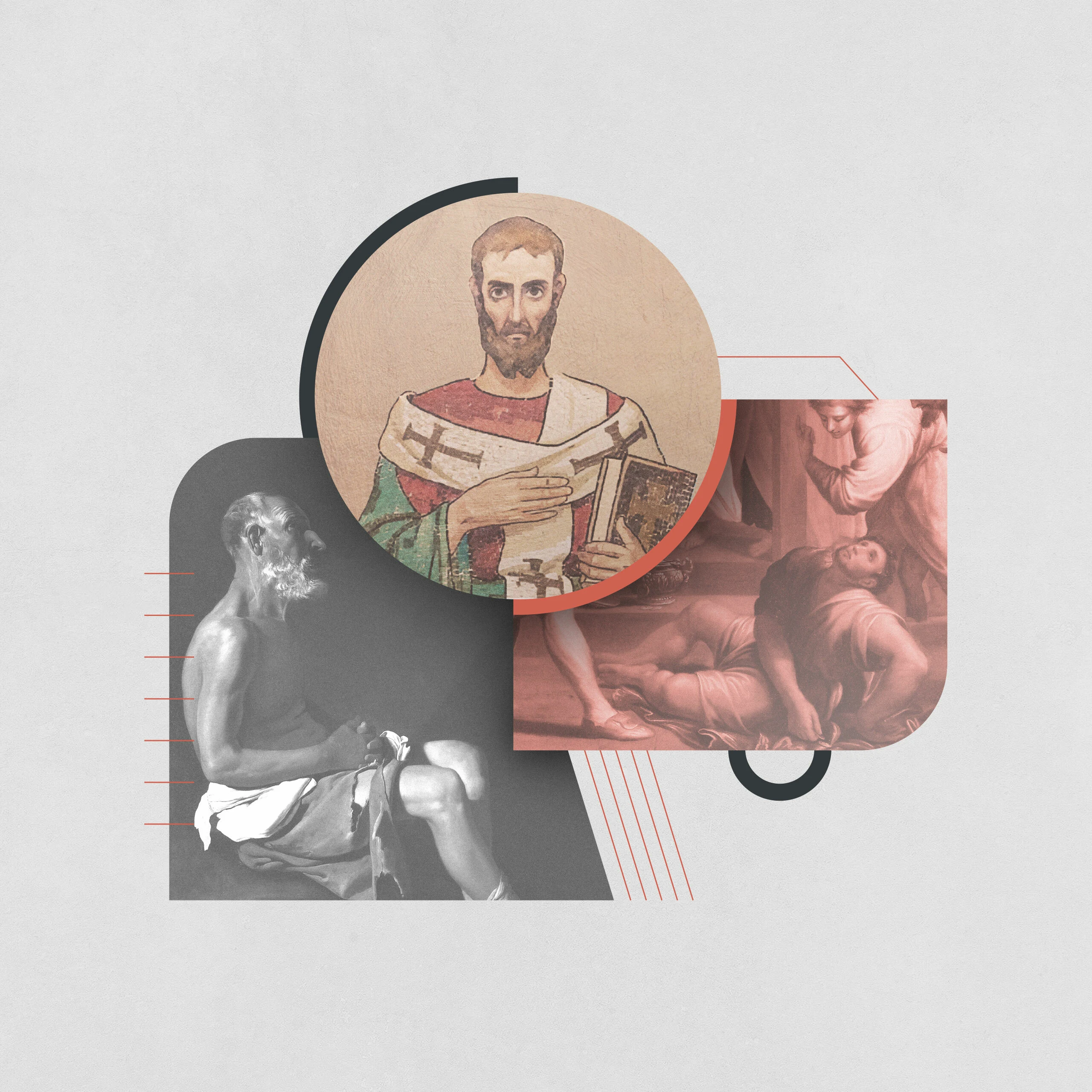Who Was Moses?

What’s in a name? In ancient Near Eastern cultures, the name of a person can carry significant weight. It can reflect an attribute of a person’s character, or it can be a key to understanding a person’s identity, or it can anticipate what a person might become. In Genesis 17:4–5, for example, God changes Abram’s name to Abraham: He was “exalted father” (Abram), but he will now be known as “father of a multitude” (Abraham). This name change reflects his new position in the covenant as the patriarchal father of the people of God. In biblical narrative, an incident of naming can be a noteworthy factor in the proper interpretation of a passage.
Another good example of this principle at work is in the birth account of Moses. After Pharaoh’s daughter rescued him from certain death in the Nile River, we read in Exodus 2:10 that “he became her son. She named him Moses, ‘Because,’ she said, ‘I drew him out of the water.’” The name Moses derives from a Hebrew verb that means “to draw out,” and so the name echoes the act of Pharaoh’s daughter rescuing the child from the Nile.
However, there is more to the account than meets the eye. The name Moses is also an Egyptian term that means “son of.” It appears in compound with other words in many Egyptian names, such as Thutmosis (“son of the god Thut”) or Ahmosis (“son of the god Ah”). When the Bible speaks of Moses, however, the genitive has no object; it simply means “son of” and, therefore, there is no designated relationship. This is probably a pun to emphasize that it was not clear at his birth whose son Moses really was. Was he the son of Pharaoh’s daughter? Was he a son of Egypt? Was he a son of Israel? Was he a son of Yahweh? What was his identity?
A Deliverer
At the time of Moses’ birth, the people of Israel had been under severe bondage for centuries. They needed a deliverer, one who would rescue them from their ruthless slavery. God responded by raising up a deliverer who was in the very court of Pharaoh. In the book of Acts, Stephen says that “Moses was instructed in all the wisdom of the Egyptians, and he was mighty in his words and deeds” (Acts 7:22). God placed Moses in the Egyptian court for a period of preparation. He was equipping Moses to do battle with the Egyptians, who were foremost in the world in education—mathematics, medicine, military strategy, magical arts, and so forth. Moses was being trained in the ways of the Egyptians so that he would not be caught unawares when the time of confrontation drew near.
Moses, by faith, was a man of God and a true son of Israel, and that is how he is to be identified.
God, in His providence, then led Moses into the wilderness for forty years to be a shepherd. This was also a time of preparation, because it was through these very lands that Moses would later shepherd the people of God. In the desert, God appeared to Moses in a burning bush on Mount Horeb (also known as Mount Sinai) and commissioned him to return to Egypt, deliver the Hebrews, and bring them back to this very mountain.
A Lawgiver
After the spectacular escape from Egypt, Moses, by God’s leading, brought the people to Mount Sinai. There God established a covenant with them (Ex. 19), and He gave them his law. Moses served as the covenant mediator between God and the Hebrew people. God spoke with Moses “face to face” (Ex. 33:11; see also Num. 12:8), and through him, God revealed His law to His people, including the Ten Commandments.
A Prophet
A true prophet in Israel is one who has been divinely commissioned to speak the very words of God. Moses was the greatest of the prophets of Israel. Deuteronomy 34:10 concludes that “there has not arisen a prophet since in Israel like Moses, whom the Lord knew face to face.” God also established the office and institution of the prophet in Israel on the foundation of the prophetic work of Moses (Deut. 18:15–22).
A Type
Most importantly, the life of Moses was a type or pointer to the Messiah who was to come. As a child, Jesus, like Moses, endured a life-threatening command from an evil monarch (Matt. 2:13–15). By God’s providence, he survived to become the supreme Lawgiver on the Mount of Beatitudes (Matt. 5). Jesus also was the ultimate and final prophet who fulfilled the prophecy of Moses that “the Lord your God will raise up for you a prophet like me from among you, from your brothers—it is to him you shall listen” (Deut. 18:15). And, finally, Jesus rescued His people like Moses, but how much greater was Jesus’ deliverance than that of Moses! Jesus saved His people not merely from slavery to an earthly monarch, but from slavery to sin. The writer to the Hebrews highlights the greater work of Jesus in comparison to Moses when he says, “Now Moses was faithful in all God’s house as a servant, to testify to the things that were to be spoken later, but Christ is faithful over God’s house as a son” (Heb. 3:5–6). Indeed, someone greater than Moses has come.
So, what’s in a name? What was Moses’ identity? To whom did his sonship belong? The author of Hebrews tells us bluntly, “By faith Moses, when he was grown up, refused to be called the son of Pharaoh’s daughter, choosing rather to be mistreated with the people of God than to enjoy the fleeting pleasures of sin” (Heb. 11:24–25). Moses, by faith, was a man of God and a true son of Israel, and that is how he is to be identified.


